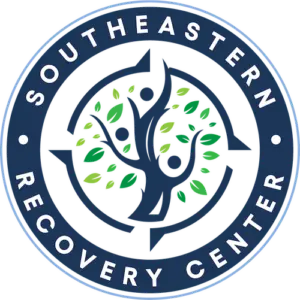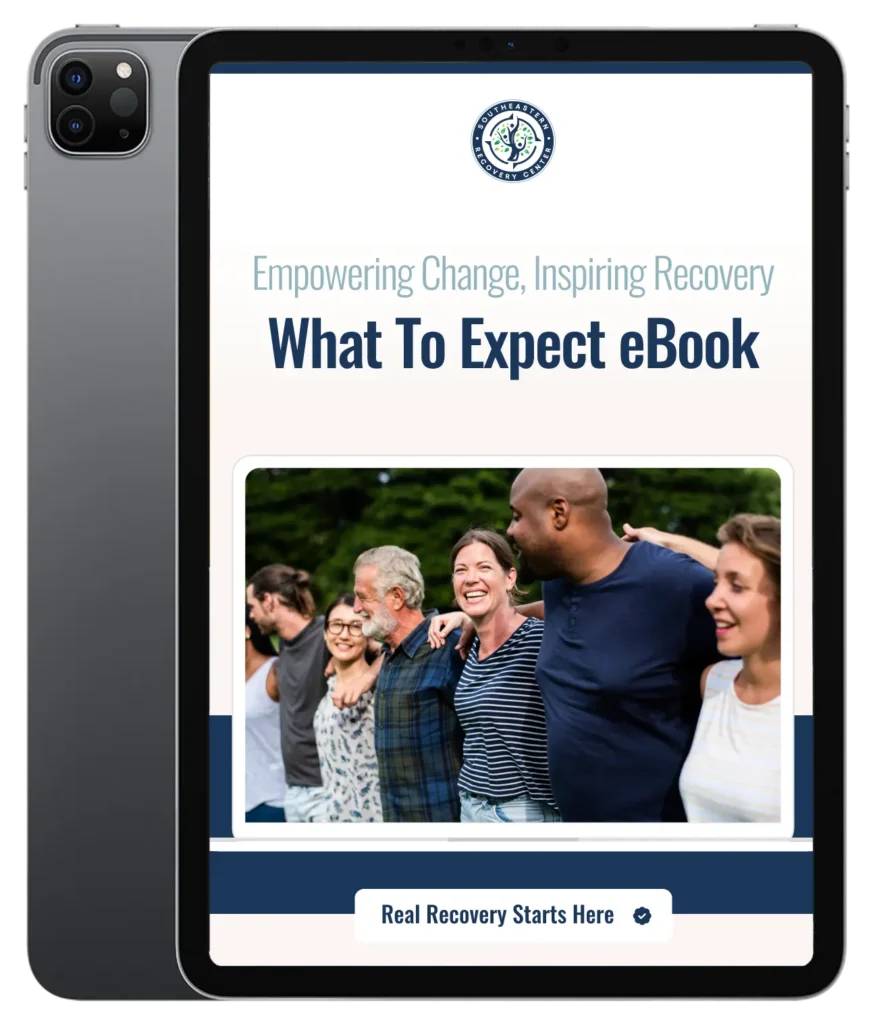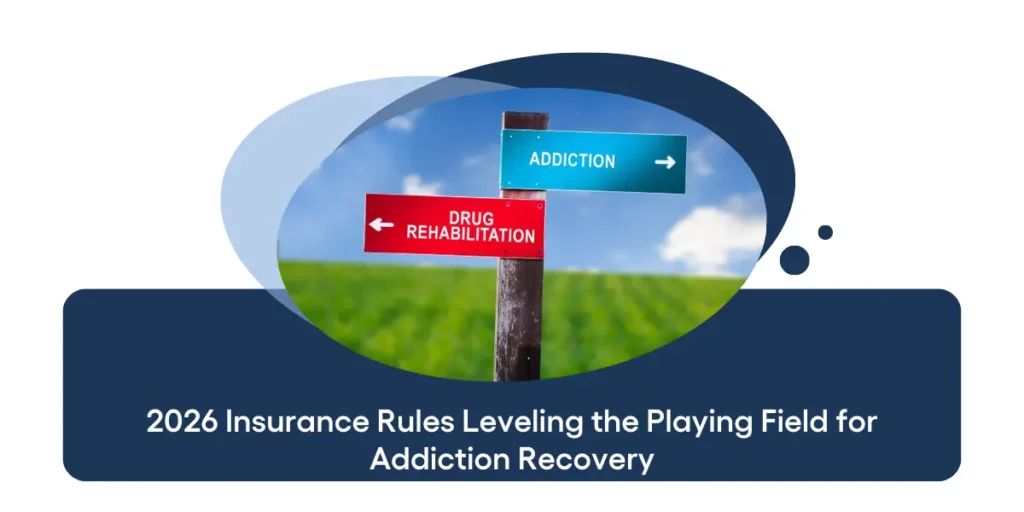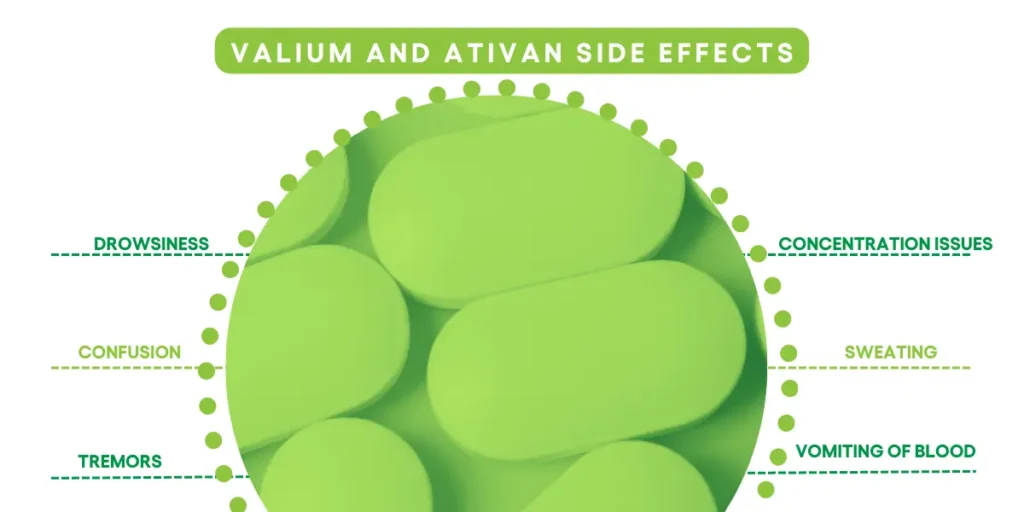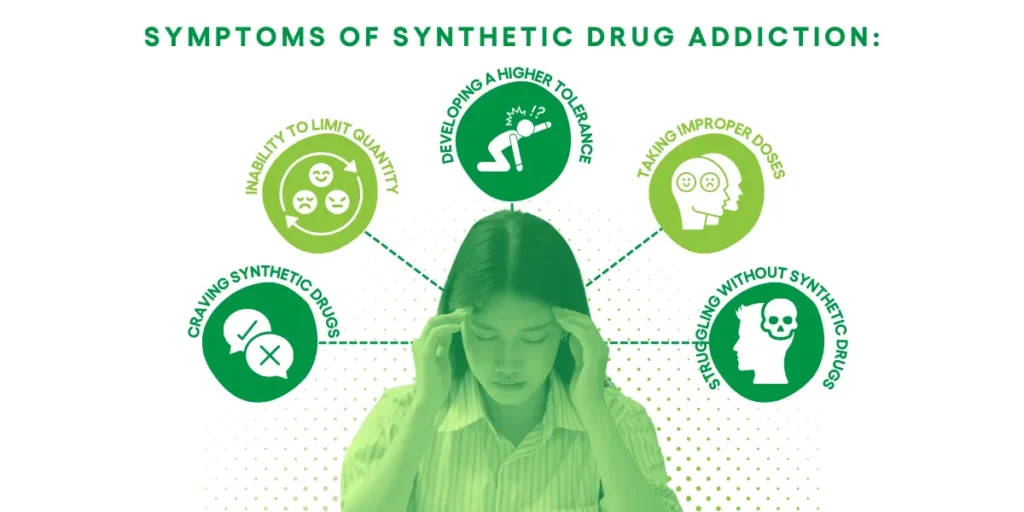Searching for “free drug rehab near me” is a critical first step toward reclaiming your life. We understand that finding affordable rehab is a priority, and while truly free options can be limited, there are pathways to affordable, high-quality care. Many recovery centers, like ours, utilize your insurance coverage, allowing us to provide many services with little or no out-of-pocket costs. We can also connect you to community resources if you don’t have coverage.
What is Drug Rehab?
Drug rehab is a structured program designed to help individuals break free from substance abuse and achieve long-term recovery. It includes a range of services, from medical detox to therapy, addressing both the physical and psychological aspects of addiction. Rehab programs focus on helping individuals regain control of their lives, build coping skills, and establish a strong support system for lasting sobriety.
Types of Drug Rehab Programs
Facilities offer a variety of rehab programs, each tailored to meet individual needs. Many drug rehab programs are covered by insurance plans, making them accessible to those who may not have the resources for self-funded rehab. Here are some of the key programs available:
1. Detox Programs
What It Is: Detox is the first step in the rehab process and involves the safe removal of substances from the body. Medical supervision ensures withdrawal symptoms are managed effectively, reducing discomfort and risk.
How It Works: With 24/7 medical oversight, patients are closely monitored as they go through withdrawal, preparing them physically and mentally for further treatment.
2. Inpatient Rehab
What It Is: Inpatient rehab provides a structured, immersive environment where patients live on-site during treatment. This approach removes outside distractions, allowing individuals to focus entirely on their recovery.How It Works: A typical day includes a mix of individual therapy, group counseling, education, and recreational activities. Patients are supported by a team of medical and mental health professionals every step of the way.
3. Outpatient Programs
What It Is: Outpatient programs offer flexibility, allowing patients to live at home while attending scheduled treatment sessions. Options include both standard outpatient and Intensive Outpatient Programs (IOPs) for those who need more structure.
How It Works: Patients attend regular therapy and counseling sessions while balancing work, family, or school obligations. Outpatient treatment can be effective for those with mild addictions or those stepping down from inpatient care.
4. Dual Diagnosis Treatment
What It Is: Many people with substance use disorders also face mental health challenges, like depression or anxiety. Dual diagnosis treatment addresses both conditions, supporting a holistic approach to recovery.
How It Works: Patients receive therapy and medication management (if needed) for both addiction and mental health issues. This combined approach is essential for those with co-occurring disorders, as treating both enhances recovery success.
5. Aftercare and Relapse Prevention
What It Is: Recovery continues after rehab, and aftercare services provide the ongoing support needed for long-term sobriety.How It Works: Aftercare may include continued therapy, support group meetings, and check-ins with a counselor. Relapse prevention strategies are taught to help individuals stay on track in their recovery.
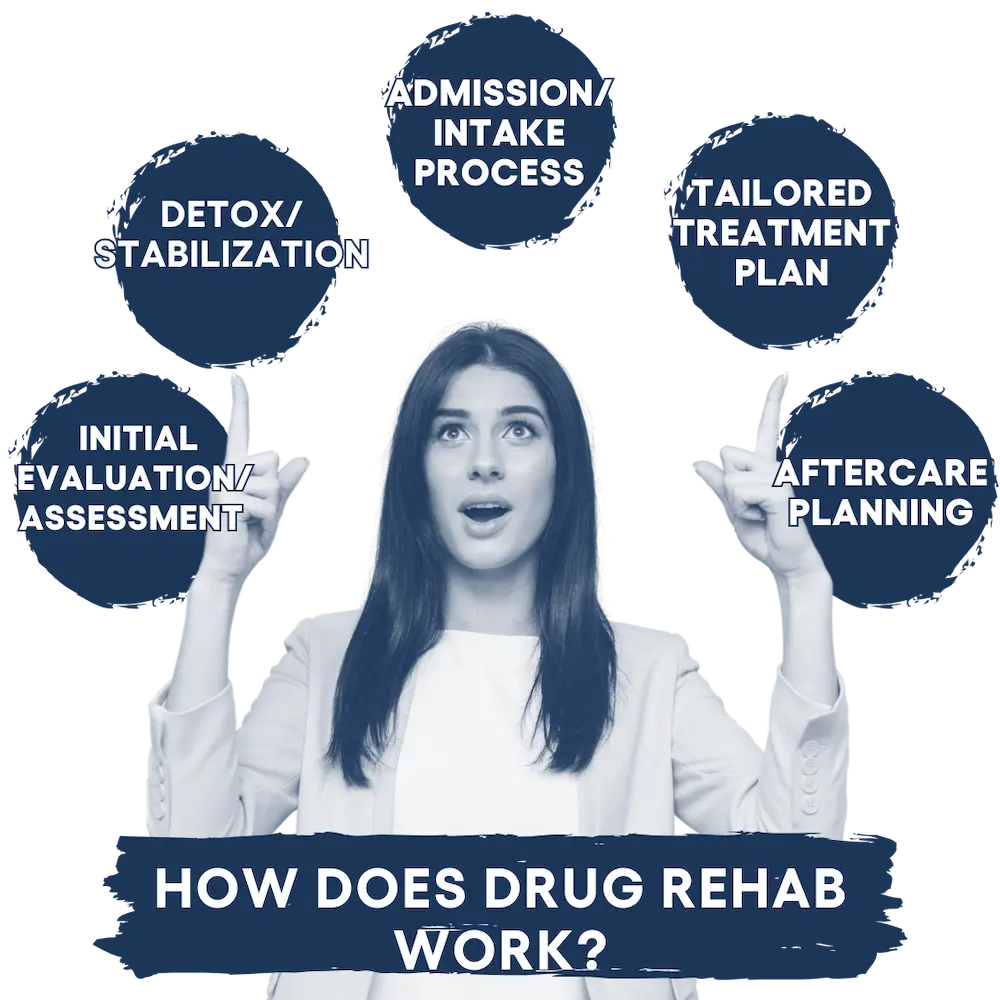
How Does Drug Rehab Work?
Rehab is a journey tailored to each person’s unique needs, but the general process includes:
- Assessment and Personalized Treatment Plan: Every individual begins with a comprehensive assessment to determine their specific needs. A personalized treatment plan outlines the best program options, therapy methods, and goals for their recovery journey.
- Detox (If Needed): Many individuals require detox to safely manage withdrawal symptoms. Our detox programs are medically supervised to ensure patient comfort and safety.
- Therapy and Counseling: During treatment, patients participate in various therapy sessions, including cognitive-behavioral therapy (CBT), group counseling, and individual therapy. These sessions address the root causes of addiction and build coping mechanisms.
- Skills Training and Education: Rehab also emphasizes practical skills, from stress management to building a healthy lifestyle, equipping individuals with tools for a sober future.
- Aftercare Planning: Long-term success is supported by aftercare planning, which includes setting up a support system and outlining resources and activities for continued sobriety.
How to Begin the Admissions Process
We aim to make the admissions process as simple and supportive as possible. Here’s what to expect when you’re ready to start:
- Contact Us: Reach out by phone or through our website to speak with an admissions specialist. Our team is available to answer your questions and help you understand what to expect from rehab.
- Insurance Verification: We offer a free insurance verification service to help you understand your coverage options. Our specialists will work with your provider to determine what is covered and clarify any out-of-pocket costs, ensuring you have a clear picture of what to expect.
- Assessment and Intake: Once coverage is verified, you’ll go through an initial assessment to design a personalized treatment plan. This assessment allows us to tailor your care based on your needs, health, and goals.
- Begin Treatment: With your plan in place, you can start your treatment program with the full support of our medical and therapeutic teams.
Free Resources to Support Your Recovery
Even if you don’t have insurance, several free resources are available to support your recovery journey:
SAMHSA’s National Helpline: SAMHSA’s helpline is available 24/7 and offers free, confidential assistance, including local resources and referrals.
Community Health Centers: Use the HRSA site to find nearby community health centers that provide free or low-cost addiction treatment.
Free Clinics and Support Groups: Peer-led groups like Alcoholics Anonymous (AA) and Narcotics Anonymous (NA) are widely available and offer free ongoing support.
FAQs: Your Questions About Free Drug Rehab and Insurance-Covered Treatment
What does drug rehab involve?
Drug rehab combines medical treatment, therapy, and counseling to help individuals overcome addiction. Programs range from detox to intensive inpatient care, outpatient options, and aftercare, depending on individual needs.
How does insurance make rehab affordable?
Insurance often covers services like detox, therapy, and inpatient and outpatient programs. With proper coverage, you may be able to access comprehensive treatment at little to no cost. Contact us to verify your insurance benefits.
What’s the difference between inpatient and outpatient rehab?
Inpatient rehab requires staying at the facility, offering intensive, round-the-clock support. Outpatient rehab allows you to live at home while attending scheduled therapy sessions. Both are effective but cater to different needs.
How can I find free rehab options if I don’t have insurance?
Options include state-funded programs, community health centers, and non-profit organizations. SAMHSA and local health departments can help connect you to these services, though wait times may apply.
What happens after rehab?
Aftercare is a vital part of recovery, including therapy, support groups, and relapse prevention strategies. Aftercare provides continued support, helping individuals maintain sobriety long-term.
Take the Next Step in Your Recovery Journey
Accessing high-quality, affordable drug rehab at Southeastern Recovery Center is within reach. Whether you’re searching for “free drug rehab near me” or exploring options for insurance-covered programs, our dedicated team is here to guide you through every step. With personalized treatment plans and compassionate, 24/7 support, we are fully committed to your recovery journey.
Contact Southeastern Recovery Center today to verify your insurance, learn more about our treatment programs, or explore additional funding options. Our team is ready to support you as you take the first steps toward a fulfilling, sober life.
